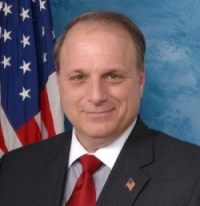 When utilities want to “charge you for what you use,” it would be nice to trust the meter is accurately measuring your usage, California consumer advocates say.
When utilities want to “charge you for what you use,” it would be nice to trust the meter is accurately measuring your usage, California consumer advocates say.
In a growing controversy, Pacific Gas & Electric (PG&E) is now being accused of installing so-called “smart meters” that were smart for PG&E profits, but financially devastating for California consumers who face higher bills and growing questions about just how accurate those “smart meters” really are.
Customers across California who have had new meters installed, which are supposed to help consumers save energy by charging lower prices at off-peak usage times of day, report enormously higher bills from PG&E after installation.
State Sen. Dean Florez, D-Shafter (Kern County), reports he has seen bills from customers that don’t begin to make sense.
“One farmer was charged $11,857 for running a piece of equipment that was never turned on. A local attorney at the hearing clutched a $500 bill from July, a month in which she was visiting family out of state and almost every appliance in her house was shut off,” he reports.
Florez quotes the woman — “My smart meter keeps reading these spikes in usage at noon. But no one was in the house,” she said. “It’s obvious to me that this technology is not ready for prime time.”
Customers across the state with smart meters have reported similar stories, and are angry with PG&E’s response to their concerns, which can be boiled down to, “the meter is right, you are wrong, now pay us.”
PG&E claims that during its own internal reviews, it found nobody being overcharged. Spokesman Jeff Smith says “in all 1700 of those cases we have not found an instance thus far of the smart meter transmitting inaccurate information or incorrect usage information.”
The California Public Utilities Commission doesn’t think that’s enough and has begun ordering an independent review of the “smart meter” program and accuracy of meter readings.
Liz Keogh spent 14 years collecting and analyzing data at the Institute for Social Research in Ann Arbor, Michigan, and now lives in Bakersfield, California. She has been pulling out her old PG&E bills and records showing her utility use all the way back to 1983. What she found since the “smart meter” was installed on her home was disturbing.
Her analysis was printed in the San Francisco Chronicle:
My July, August and September 2009 bills showed the highest usage and cost in 26-plus years, even though I rarely go over “baseline usage.” The dollar difference from 2008 to 2009 was $20 to $30 each month. Billing costs are a product of usage multiplied by kilowatt-hour rates, which, like the federal income tax structure, is “tiered,” so that the more you use, the more you pay – and at higher and higher rates. Analysis of usage is the first step toward understanding fluctuations in cost.According to the smart meter installed on Sept. 12, 2007, the increase in my 2008-09 usage over 2007 was:
2008 2009 May +5.6% +28.6% June +7.5% +32.6% July +10% +50.2% Aug. +3.1% +41.1% Sept. -4.8% +67.9% Oct. +4.9% NA PG&E’s own data show there was not a significant difference in temperatures for each comparable month. Why, then, did my “usage” increase range from 30 percent to 70 percent in 2009, while the 2008 increases were no more than 10 percent?
Simple answer: Meter malfunctioning, whether accidental and idiosyncratic, or, as some claim, intentional.
The suspicion that funny business is going on might be justified when considering Bakersfield residents have been through this all before.
“[Several years ago] Bakersfield is where PG&E first realized it had made a $500 million mistake, installing tens of thousands of inferior meters that would never live up to the promise. So the utility purchased a new generation of meters from Silver Spring Networks Inc. of Redwood City. PG&E insists that these new meters are glitch-free, though it concedes that it has tested only 50 out of 250,000 meters in Kern County,” Florez said.
At a time when some broadband providers want to install their own meters to overcharge customers for their Internet service, the PG&E experience is telling. Independent oversight of any meter comes down to the enforcement mechanism available to guarantee accuracy. But broadband service in the United States is unregulated, and no such enforcement mechanism exists.
And just when you thought you could believe the rhetoric that utility customers who conserve their usage will save more money, another electric and gas utility in San Diego filed a rate increase request that will charge customers who have managed to cut their usage even higher prices than those who have not.
[flv width=”640″ height=”480″]http://www.phillipdampier.com/video/KGET Bakersfield Senator Florez Questions SmartMeters 9-23-09.flv[/flv]
KGET-TV Bakersfield talked with Senator Florez on September 23 about the SmartMeter controversy (4 minutes)
More video coverage below the jump.


 Subscribe
Subscribe




